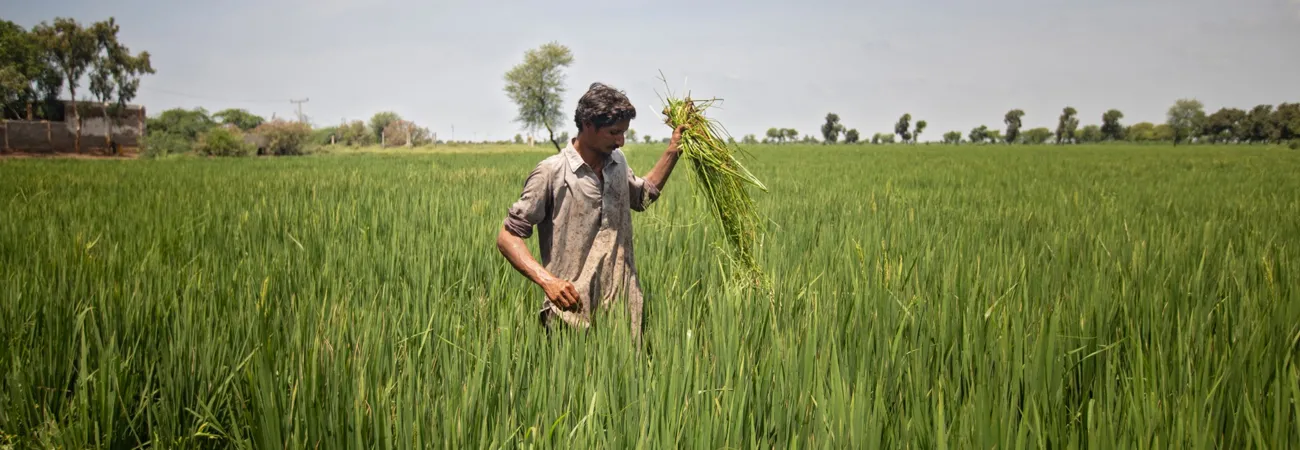i ECONOMY
In a ground-breaking move aimed at transforming the uncultivated lands into productivity hubs, the Sindh government has announced plans to lease out 52,713 acres of the unused state-owned for corporate farming, reports WealthPK. This "bold and visionary" move aims to bolster prosperity and ensure food security through the cutting-edge corporate farming techniques in close collaboration with the Pakistan Army and foreign investors. Under the umbrella of the Special Investment Facilitation Council (SIFC), this transformative project not only promises higher crop yields and increased revenue but also signifies a crucial step towards achieving food security — a cornerstone often overlooked. "Sindh's decision to lease 52,713 acres for corporate farming is a strategic and forward-thinking move. This initiative will resolve the critical issues plaguing Pakistan's agriculture sector, offering a multifaceted solution to enhance productivity, ensure food security, and promote economic prosperity," said an expert from the Sindh Agriculture University Tandojam, who wished to remain anonymous.
"The collaboration between the Government of Sindh, Pakistan Army, and foreign investors under the Special Investment Facilitation Council (SIFC) reflects a holistic approach to development. The long-term lease agreement, coupled with the commitment to sharing profits with the local community, showcases a rare synergy between the government and private entities. This collaboration will not only inject the much-needed capital and expertise into the agricultural sector but also foster a conducive business environment, he said. "The decision to focus on the uncultivated state land, spread across key regions, is commendable. It will not only provide a canvas of opportunities for transforming the unused land into productive agricultural hubs but also strategically addresses the challenge of insufficient food production," he added. The agricultural practices in Sindh have been hindered by outdated and traditional methods of farming. These practices have been in use for a long time and have not kept up with the modern advancements in the field of agriculture. This has resulted in lower crop yields and decreased efficiency in the farming process. Additionally, lack of access to the modern farming equipment and technology has also contributed to the challenges faced by farmers in Sindh.
Therefore, the emphasis on modern farming techniques aligns with the global trends in sustainable agriculture. It will promise higher yields while minimizing environmental impact. Leveraging modern technology offers numerous advantages, such as increased agricultural yield, decreased reliance on water, fertilizers, and pesticides, contributing to stabilized food prices. If executed with diligence and a commitment to sustainability, this initiative has the potential to serve as a model for agricultural development, contributing to both regional and national prosperity.
Credit: Independent News Pakistan (INP)









